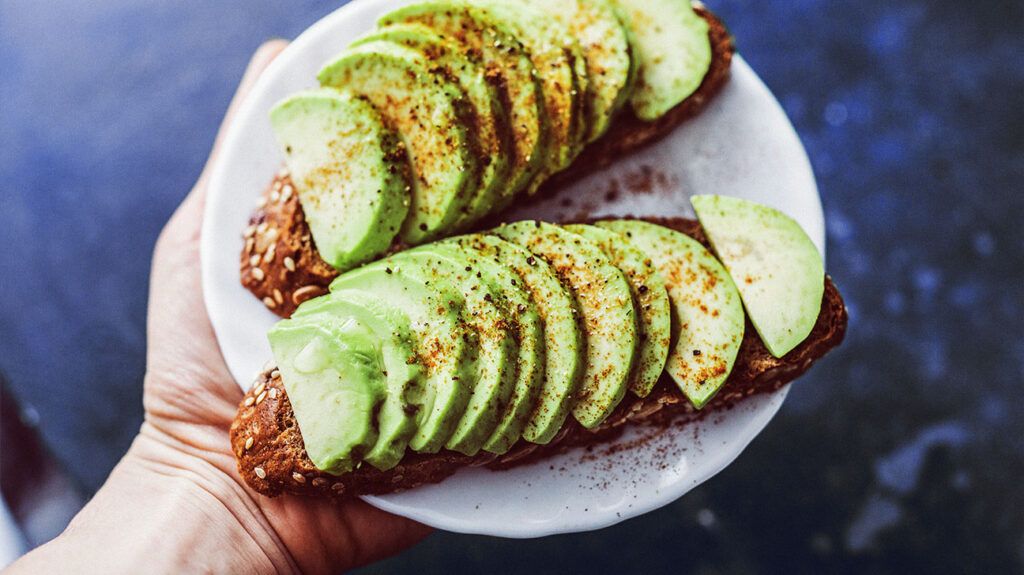A gestational diabetes test checks blood sugar, or glucose, levels during pregnancy. Before the test, people should avoid consuming food and drinks that are high in sugar and simple carbohydrates, as these may affect results.
High blood sugar levels in pregnancy can indicate gestational diabetes, which without treatment, could affect maternal and fetal health. People may also refer to the test as a glucose screening test or glucose challenge test.
A glucose tolerance test is a follow-up test that people may need if the initial test shows high blood sugar. This can confirm a diagnosis of gestational diabetes.

People
A doctor will provide specific instructions on when a person can eat before their glucose test.
If people are having a glucose screening test in the morning, they can eat breakfast as usual. Healthcare professionals generally recommend eating a meal that is low in sugar and also contains complex carbohydrates and protein. This may include meals such as:
- wholegrain toast with avocado or natural peanut butter
- plain Greek yogurt with berries
- oatmeal with low fat milk and nuts or sliced apple
- scrambled eggs or omelet with broccoli or tomatoes
Before a glucose tolerance test, people can eat their usual diet in the days before as significant changes such as dieting
It is often recommended that people avoid simple carbohydrates and sugary foods and drinks on the morning of the glucose screening test. This includes items
- refined cereals
- white bread
- cakes, pastries, and other baked goods
- syrups
- fruit juice
- soda
- honey
- white or brown sugar
- candy
Certain foods, such as simple carbohydrates,
It takes longer for the body to digest complex carbohydrates, meaning the glucose is released into the bloodstream more slowly. This avoids spikes in blood sugar and helps keep the levels stable.
If a person’s blood sugar spikes due to food, this may affect test results.
In some cases, people
Also, making major changes to the diet in the days before a test
Aside from limiting simple carbohydrates and sugary food right before the test, people do not typically need to do anything to prepare for a glucose screening test.
However, a person may need to discontinue medications that are known to affect glucose intolerance. It is important to not stop taking any medications without discussing it with a doctor first.
People will need to avoid eating anything for
Normal results for a glucose screening test show blood sugar levels are at
In this case, a doctor will order a glucose tolerance test to confirm the results. If a glucose tolerance test also shows high blood sugar levels, a doctor will diagnose a person with gestational diabetes.
If a person has a gestational diabetes diagnosis, they will need to track their blood sugar and manage it with a balanced diet and regular physical activity.
A doctor will monitor people with more frequent prenatal appointments and prescribe any medications to manage blood sugar if necessary.
Gestational diabetes goes away after giving birth, although it can increase the risk of developing diabetes in the future.
Can I drink milk before a gestational glucose test?
People may be able to drink milk before a glucose test. Milk with lactose contains carbohydrates, so it will affect blood sugar levels. Lactose-free milk breaks down into simple sugars, which can also affect blood sugar.
Before a glucose tolerance test, people will only be able to drink water, as it requires a period of fasting beforehand.
Can I eat sugar the day before a gestational glucose test?
People
People can speak with a doctor for specific guidelines on the best diet to follow before the test.
What is the best thing to eat before a gestational diabetes test?
People can eat a meal low in sugar, which contains complex carbohydrates and protein. It is best to avoid sugary drinks and refined carbohydrates, as these can increase blood sugar levels.
How can a person lower their blood sugar before a gestational diabetes test?
People can eat a balanced diet and avoid simple sugars and refined carbohydrates. Taking a walk before the test may also help.
Before a glucose screening to test for gestational diabetes, people should continue eating their usual diet. However, eating foods that are high in sugar and simple carbohydrates shortly before the test may affect the results.
People can eat breakfast as usual on the morning of the test. Eating complex carbohydrates and fiber may help manage blood sugar levels.
If the results of the glucose screening test suggest high blood sugar levels, a person may require a glucose tolerance test. Before taking this particular test, a person needs to fast. A doctor will be able to provide more detailed information.


